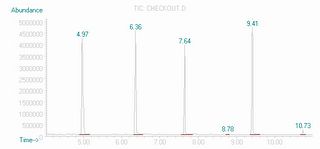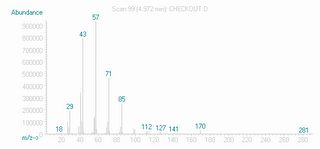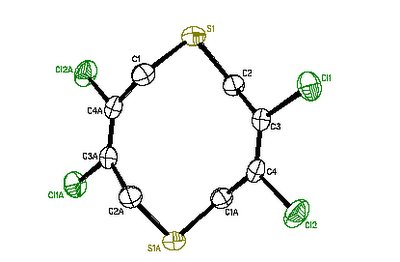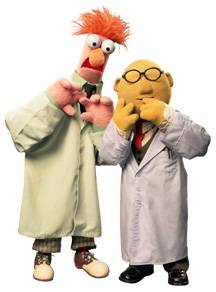Predicting the future
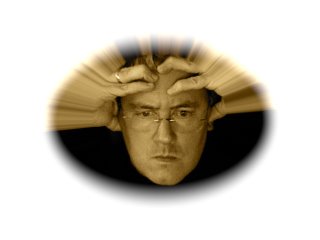
People are awful at predicting the future. When I was a kid, in the 1970s, I heard all sorts of predictions- that the world would end at any day (I grew up in the Bible Belt), that communism was destined to rule the world, that the heyday of the United States was in the past and we would soon decay away. I heard stories that we would soon run out of oil, that nuclear energy was the future, except that there was no future, because the US and the Soviet Union would soon destroy Earth in a nuclear war. I heard predictions that bellbottoms would return. And that we would have a colony on the moon by the year 2000.
Scientists are as bad or worse than any of the rest. While they may know one particular area very well, it is the interactions between areas, and the unexpected developments, that really drive science. And many scientists, some of them brilliant men and women that I know personally, are just butt ignorant of even the basics of economics and sociology. There a forces, therefore, that they never consider, and as such, their prognostications are pretty well useless.
So I tend to be pretty dismissive of predictions, especially very specific predictions. Worse are policy suggestions that come from scientists.
Still, I expect progress, and I expect more progress than I "expect". Most progress that we forsee is some linear application of new technology, or some extension of well-tested theories. I expect that some especially sagacious scientist might be able to predict forward a year or two if the predictions are sufficiently circumscribed, but I think that the scientist would also have to be damned lucky, too.
No one predicted the way the internet has taken off. Far more importantly, no one could have planned the internet. If someone had set out twenty years ago to create what spontaneously arose out of the skeleton net that government, military and academia had put togetther, we would not have it today, and it would not be essentially free to access. It grew a little at a time, with each advance adding new and unforseen possibilities. It could not have been planned, because it was invented incrementally. Surprisingly, there is actually a handful of scientific principles that explain why technological innovation is diffcult to predict.
These principles not only explain the lack of predictive success in science, but also in politics, especially the sort of activist politics that characterized the golden age of centralized planning in the early to mid 20th century. They suggest that careful central planning of anything complicated is doomed to failure.
An analogy might help illustrate one major principle: Imagine reaching for a glass of water. You don't plan the trajectory in detail- you simply set the goal. The mechanism your body and brain use to accomplish this is one that involves a constant monitoring of the position of your hand, and successive minor adjustments designed to minimize the error between the position of your hand, and the position of the glass. The monitoring of the error signal is known in control theory as feedback.
You might think of feedback in more colloquial terms- basically someone giving their opinion of what you are doing. This can count, if it is used by you to adjust your approach. Or you might think about the horrible squeal that the PA system at PTA meetings makes. That is a kind of feedback, but instead of helping by minimizing errors, it squalks because it maximizes the error. Oddly, such feedback is called "positive feedback" because it adds to the error. The good feedback, the error signal monitoring that allows you to pick up you water glass, is negative, because it chips away at the error signal until you succeed.
Suppose, instead, you carefully planned the exact 3 dimensional trajectory in space that you would take before you stared. Suppose that, as you approached your goal, something either got in the way, or moved the glass. You would, in real life, automatically adjust, but that's using feedback- if you used only the pre-planning, you'd never reach the goal. It is tempting to say that government is different from that. It is when it works. But the "glorious 5 year plans" that failed communism so profoundly were clearly of the opposite character.
So it is difficult to plan your path, though vital to plan your goal. Actions are determined by feedback, and what actually incarnates in the process, a surprise.
Another thing that makes prediction of the future is nonlinearity. When something has a nonlinear response, the reaction to a small change may be wildly out of proportion. Weather is the classic example. But consider the invention of integrated circuits.
When I was a youngster, a Cub Scout I think, I saw a minicomputer on a field trip. 'Minicomputer' meant that it only took up about a third of the office it was kept in. It was boring- a big box used by an accounting office. No indication that within a few years, the exponential advances in integrated circuitry would mean my best friend would own an early microcomputer, and that within a few decades, I would own more computing power sitting unused in my garage than existed in private hands at the time I saw the minicomputer. There was no display obvious in the minicomputer room. I think it was programmed via punched cards, and its read out was a big line printer. I recently installed a graphics coprocessor for my son that is as powerful as any computer I had owned as recently as a few years ago. Exponential changes make things cheaper and more powerful at a rate that is difficult to fathom, and impossible to predict.
Exponential vs linear growth is something that is hard to wrap one's mind around. Imagine the increases in your paycheck over time. Linear with time, if you are lucky. We intuitively understand this. We understand getting double out when we double our effforts.

Now, imagine bacteria introduced into a bowl of beef broth, a single bacterium. Soon there are 2, then, in the same span of time again, let's assume 1 minute, 4. This continues, and, if you only notice the growth at the very beginning, it doesn't look much different from linear growth. But 4 becomes 8 becomes 16. Clearly it is fast, but it still is hard to get a sense that it is getting faster, and it is getting faster faster, and getting faster faster faster... Not to belabor the point, but for truly exponential growth, there is no end to the "faster's" that you can concatenate.
After 10 generations we are up to 1024 bacteria. Is this a lot more than if the population increased linearly? Let's compare a linear growth rate, assuming we added 1000 bacteria a second. At 10 seconds, linear growth would give 10,001, while exponential would give 1024. Not impressed with exponential growth yet? Let's wait another 10 seconds. Now we have 20,001 bacteria in the linear growth pot, and 1,048,576 in the exponential growth pot. Hmm. It is tempting to stop here, but remember, not only the rate, but the rate at which the rate increases increases with time. 10 seconds later, the linear pot has 30,001 bacteria, while the exponential pot has 1.07 billion.
Okay, you say, so what? Consider that this is exactly the way that compound interest works. If a person begins saving money at a young age, at a modest rate, with a modest rate of return, they can absolutely retire wealthy. But almost no one does it, because we are so poorly tuned to see exponential opportunities. If social security was actually put in a safe treasury bill account, rather than being treated as free money by politicians, there would be no solvency problem.
The brakes eventually are put on our bacteria by limitations to the amount of food and space available. In the world of ideas, it is more difficult to see where natural limits exist, though they may. For the time being, we are in an exponential growth phase of human knowledge, especially led by technology. We have begun to see the limits to miniaturization, because the size of atoms is a wall that we will not be able to breach in any foreseeable way. But then, foresight is not all that good.
There are dark sides to this, and unfortunately, they are equally unpredictable. I don't mean to paint the future as carefree because technology advances so quickly. But I expect that what I worry about now will not end up being the problems that I or my children actually have to work frantically to solve. That is the closest to a good prediction that I can make.

